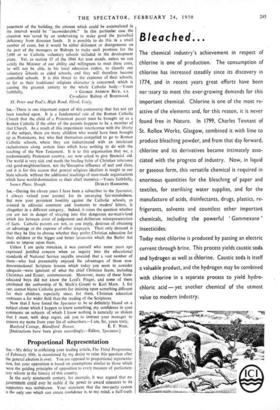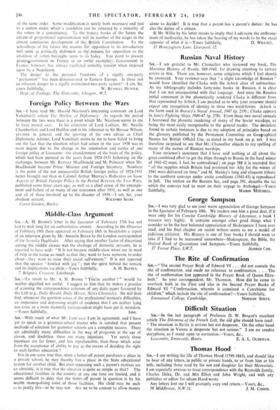Proportional Representation
SIR,—My delay in criticising your leading article, The Third Programme, of February 10th, is occasioned by my desire to raise this question after the general election is over. You are opposed to proportional representa- tion, but your opposition is based on assumptions similar to those which were the guiding principles of opposition to every measure of parliamen- tary reform in the history of this country.
In the early nineteenth century, for example, it was argued that no government could ever be stable if thc power to award sinecures to its supporters was withdrawn. Your statement that the two-party system is the only one which can create confidence is, to my mind, a half-truth of the same order. Some modification is surely both necessary and just to a system under which a candidate can be returned by a minority of- the voters in a constituency. To the history books of the future the advent of proportional representation will be another of the stages in the almost continuous development of the ;British Constitution. To the schoolboys of the future the reasons for opposition to its introduction will seem as politically dishonest as the.reiisoris fOr opposition to the abolition of rotten boroughs seem to ts today. You point to present group-government in France as an awful examplcqr Government in France, however, has always vacillated unstably (except when imposed upon by a Napoleon).
The danger to the personal freedoms of *a rigidly one-party " parliament " has been demonstrated in Eastern Europe. Is there not an inherent danger in a rigidly maintained two-party system?—! am, Sir,



































 Previous page
Previous page